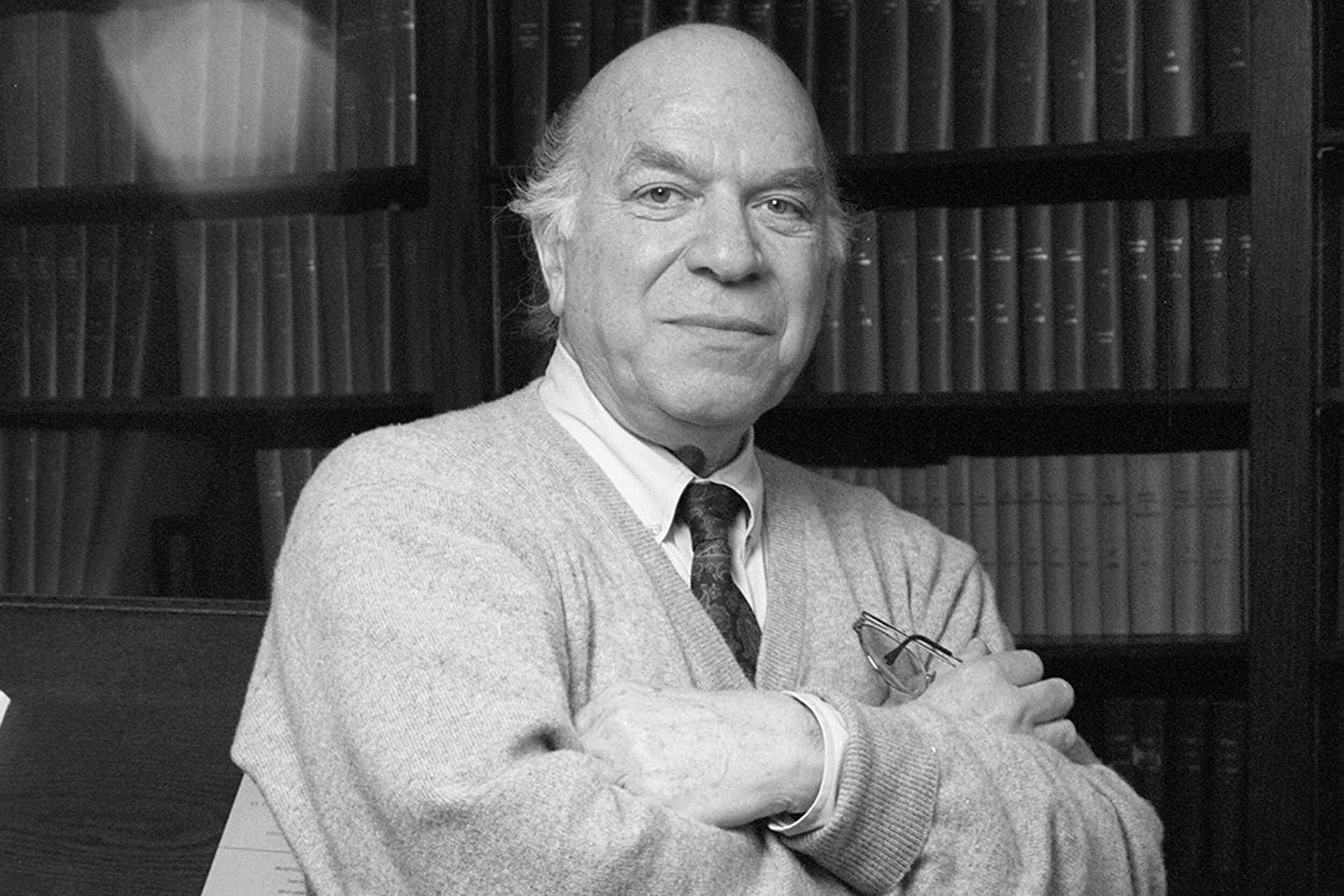
Stanley Cavell, a distinguished American philosopher and cultural critic, has made significant contributions to the fields of aesthetics, philosophy of language, and film theory. His unique perspective and insightful analyses have earned him a reputation as one of the most influential thinkers of the 20th century. In this article, we will explore 15 intriguing facts about Stanley Cavell that shed light on his life, work, and intellectual achievements. From his early influences to his groundbreaking theories, we will delve deep into the fascinating world of this brilliant mind. Whether you are a philosophy enthusiast or simply curious about the life of an intellectual, these facts will provide a captivating glimpse into the legacy of Stanley Cavell.
Key Takeaways:
- Stanley Cavell was a brilliant philosopher and film critic who explored the significance of everyday experiences and influenced diverse fields beyond philosophy with his interdisciplinary approach.
- His legacy continues to inspire new generations of thinkers, bridging the gap between high theory and popular culture and shaping the intellectual landscape with his unique perspective on language, skepticism, film, and the ordinary.
Stanley Cavell was a notable American philosopher and film critic.
A true polymath, Cavell delved into various fields including philosophy, literature, film, and aesthetics. His unique blend of intellectual rigor and cultural analysis made him a revered figure in academia and beyond.
Cavell’s work focused on ordinary language philosophy.
One of Cavell’s major contributions to philosophy was his exploration of ordinary language and its implications for understanding concepts such as skepticism, morality, and the nature of language itself. His writings challenged traditional philosophical approaches and offered fresh insights into the complexity of human communication.
He was a renowned film critic.
Cavell’s love for cinema led him to pursue film criticism alongside his philosophical pursuits. His film analyses were known for their depth and interdisciplinary approach, intertwining philosophy, literature, and cultural commentary to shed light on the deeper meanings inherent in cinema.
Cavell’s major work, “The Claim of Reason,” expanded the discourse on skepticism.
In this groundbreaking book, Cavell examined the problem of skepticism by exploring its connection to language and the fundamental human need for acknowledgment and recognition. His ideas challenged traditional interpretations of skepticism, opening up new avenues for philosophical inquiry.
He was a professor at Harvard University for many years.
Stanley Cavell spent an extensive portion of his career at Harvard University, where he taught philosophy and film studies. His presence and influential teachings left a lasting impact on the intellectual community, inspiring generations of students and scholars.
Cavell’s writings on film encompassed a wide range of directors and genres.
From classic Hollywood films to European art cinema, Cavell’s film writings covered a diverse array of directors and genres. He explored the works of filmmakers such as Alfred Hitchcock, Charlie Chaplin, and Ingmar Bergman, providing profound insights into their artistic vision and the timeless themes they explored.
Cavell’s concept of “the ordinary” examined the significance of everyday experiences.
Central to Cavell’s philosophy was the idea that ordinary experiences contain profound meaning and philosophical insights. He believed that by closely examining our everyday encounters and relationships, we can unravel the layers of human existence and gain a deeper understanding of ourselves and the world around us.
He had a unique writing style characterized by his eloquence and clarity.
Cavell’s writing style was admired for its elegance and lucidity. Rather than relying on jargon or technical language, he expressed complex philosophical ideas in a manner accessible to both scholars and general readers, making his work widely appreciated and influential.
Cavell’s ideas influenced various disciplines, beyond philosophy.
His interdisciplinary approach and original insights made Cavell’s work relevant in fields such as cultural studies, literary criticism, and film theory. His concepts, such as the “philosophy of acknowledgment” and the “remarriage plot,” resonated with scholars from diverse academic backgrounds.
Cavell explored the nature of comedy and its relationship to philosophy.
An avid lover of comedy, Cavell dedicated a significant portion of his writings to the analysis of humor and its philosophical implications. He believed that comedy could reveal important truths about the human condition and the complexities of existence.
His book “Emerson’s Transcendental Etudes” established him as an expert on Ralph Waldo Emerson.
Cavell’s deep appreciation for the works of Ralph Waldo Emerson led him to write a book examining Emerson’s transcendental philosophy and its relevance in the modern world. This seminal work solidified Cavell’s reputation as a leading authority on American transcendentalism.
Cavell’s writings on skepticism sparked ongoing debates in the philosophical community.
His unconventional approach to skepticism, emphasizing the importance of language and acknowledgement, challenged established philosophical positions and ignited lively discussions among scholars. Cavell’s ideas continue to inspire philosophical inquiries into the nature of truth and knowledge.
He was a recipient of numerous prestigious awards and honors.
Throughout his career, Stanley Cavell received several accolades for his intellectual contributions and scholarly achievements. These honors included fellowships, honorary degrees, and prestigious awards recognizing his profound impact on philosophy and the humanities.
Cavell’s impact extended beyond academia into popular culture.
His writings on film and philosophy resonated with a wide audience, captivating not only scholars but also film enthusiasts and general readers. Cavell’s ability to bridge the gap between high theory and popular culture made his ideas accessible and relevant to a broad range of individuals.
Cavell’s legacy continues to inspire new generations of thinkers.
Even after his passing, Stanley Cavell’s ideas and insights continue to shape the intellectual landscape. His unique perspective on language, skepticism, film, and the ordinary serves as a foundation for further explorations and philosophical inquiries, ensuring his enduring legacy in the realms of philosophy and cultural criticism.
Conclusion
In conclusion, Stanley Cavell was a remarkable figure in the field of philosophy. His unique perspective and insightful contributions have left a lasting impact on various areas of study, including film theory, aesthetics, and moral philosophy. Cavell’s emphasis on the ordinary and the everyday, his exploration of language and skepticism, and his ability to bridge the gap between philosophy and popular culture have made his work intriguing and relevant to scholars and enthusiasts alike.Through his writings and teachings, Cavell invites us to question and reconsider our assumptions about art, literature, and the human condition. His ideas continue to inspire new generations of thinkers and provoke intellectual discourse. Whether it’s his groundbreaking theories on spectatorship or his profound examinations of moral skepticism, Cavell’s legacy remains a captivating subject for exploration and analysis.In summary, Stanley Cavell’s contributions to philosophy are both thought-provoking and profound. His work challenges us to think differently, question normative frameworks, and engage with the complexities of human existence. As we delve deeper into his ideas, we uncover a rich tapestry of concepts that continue to shape our understanding of philosophy and its impact on our lives.
FAQs
Q: Who was Stanley Cavell?
A: Stanley Cavell was an American philosopher and academic, known for his work in the areas of aesthetics, film theory, and moral philosophy. He was born on September 1, 1926, and passed away on June 19, 2018.
Q: What were some of Stanley Cavell’s notable contributions to philosophy?
A: Cavell made significant contributions in various fields, including film theory, moral philosophy, and the philosophy of language. He is well-known for his works such as “The World Viewed: Reflections on the Ontology of Film,” “The Claim of Reason: Wittgenstein, Skepticism, Morality, and Tragedy,” and “Must We Mean What We Say?: A Book of Essays.
Q: What is Cavell’s interpretation of skepticism?
A: Cavell approached skepticism from a unique perspective, emphasizing the importance of language and communication in overcoming the barriers of skepticism. He argued that the ordinary language we use in our everyday lives provides us with a form of certainty that enables us to understand and navigate the world around us.
Q: How did Cavell bridge the gap between philosophy and popular culture?
A: Cavell believed in the significance of popular culture, particularly films, as a means to explore philosophical questions and engage with broader societal issues. He analyzed and dissected films, considering them as valuable philosophical texts that reveal insights into our shared human experience.
Q: What is the significance of Cavell’s notion of “the ordinary”?
A: Cavell’s exploration of the ordinary highlights the importance of paying attention to the mundane aspects of our lives. He argued that these ordinary encounters and experiences hold profound philosophical implications, challenging us to reevaluate our preconceived notions and uncover deeper truths about ourselves and the world.
Was this page helpful?
Our commitment to delivering trustworthy and engaging content is at the heart of what we do. Each fact on our site is contributed by real users like you, bringing a wealth of diverse insights and information. To ensure the highest standards of accuracy and reliability, our dedicated editors meticulously review each submission. This process guarantees that the facts we share are not only fascinating but also credible. Trust in our commitment to quality and authenticity as you explore and learn with us.


